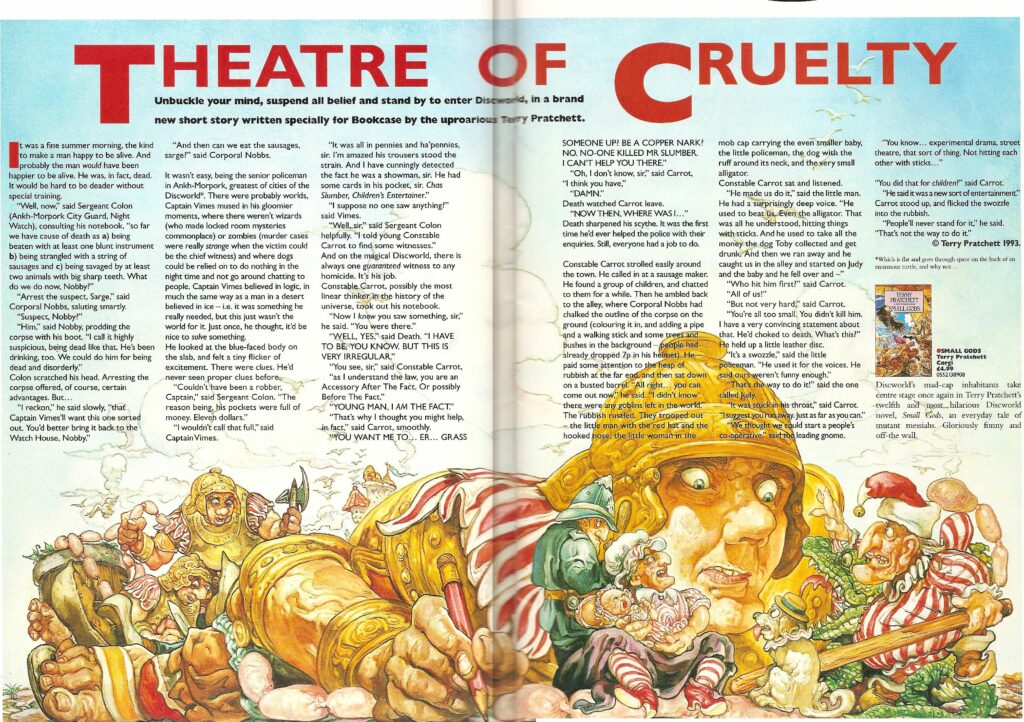#Pratchat70 – Punching Up
Liz and Ben are joined by guest author Caimh “C. K.” McDonnell as they read a very early and very short chapter in the history of the Watch: Terry Pratchett’s 1993 short Discworld story, “Theatre of Cruelty”.
When the Watch discover a murdered entertainer with pockets full of change, a string of sausages round his neck, and no witnesses to the crime, the Clues are very unhelpful. But Corporal Carrot is on the case – and when it comes to solving the crime, he knows the way to do it…
Written for W H Smith’s free Bookcase magazine – a pristine copy of which now fetches a few hundred dollars – “Theatre of Cruelty” was published not long before the second Watch novel, Men at Arms. It packs more jokes into 1,000 words than most people write in a lifetime, and is also a delightful extra outing with the original officers of the Ankh-Morpork City Watch. But don’t take our word for it: you can read it yourself at the L-Space web.
Is it a satisfying murder mystery? Why does Pratchett seem to have a thing for Punch and Judy? And how on Earth did we talk for nearly two hours about such a short piece of writing? Join the conversation – and send us your favourite short stories and cruel bits of theatre – using the hashtag #Pratchat70.
Podcast: Play in new window | Download (Duration: 1:50:23 — 51.2MB)
Guest Caimh McDonnell is a comedian, writer and author best known for two series of books. The first is the “Dublin Trilogy” comic thrillers, starring Bunny McGarry and a cast of loveable rogues, beginning with A Man With One of Those Faces in 2016 (though see the reading order on his website). The other – as C. K. McDonnell – is the comic urban fantasy series The Stranger Times, about a weird newspaper called The Stranger Times, and beginning with the novel titled…er…The Stranger Times in 2021. Aside from his books you can hear his writing on two podcasts: The Bunnycast for further crime stories, and The Stranger Times Podcast for more Stranger Times. You might also catch him live this Halloween via his Facebook or YouTube accounts! Caimh is on Twitter at @caimh, and his website is whitehairedirishman.com. The Stranger Times series has its own site at thestrangertimes.co.uk.
You’ll find notes and errata for this episode on our web site.
For our October episode, we’re going on one last trip to Roundworld as we read and discuss The Science of Discworld IV: Judgement Day with two special guests, including our old friend and Uniting Church minister, the Reverend Doctor Avril Hannah-Jones. We’re recording around the 25th of September, so don’t delay – get your questions about the book (or the Science series as a whole!) in ASAP via email to chat@pratchatpodcast.com, or on social media using the hashtag #Pratchat71.
Want to help us get to the end of our six(ish) year mission and read every Pratchett book – and more? You can support us with a tip, or a subscription for as little as $2 a month, and that’s cuttin’ our own throats! See our Support Us page for details.

